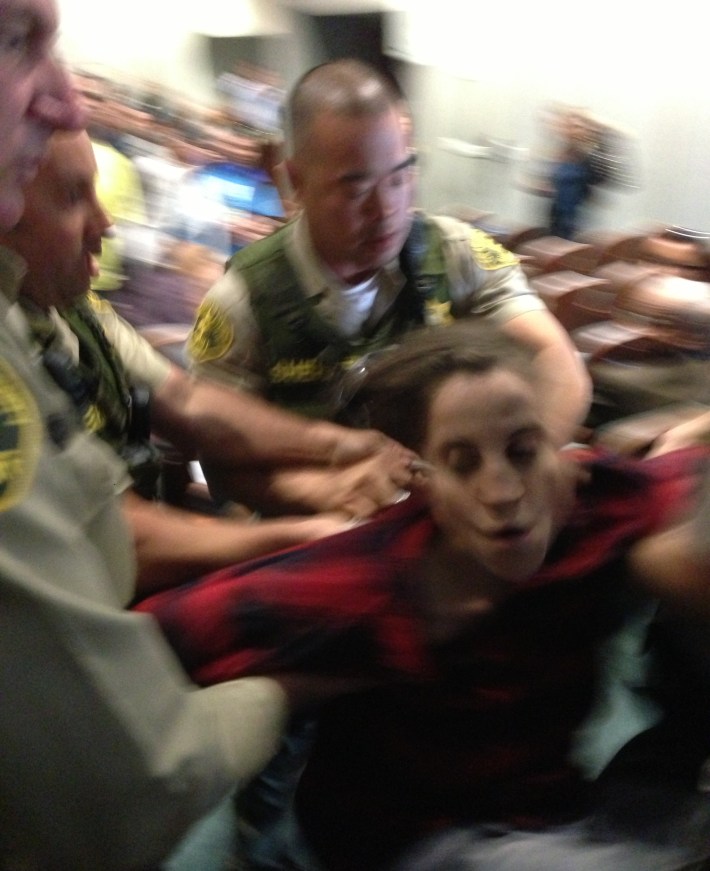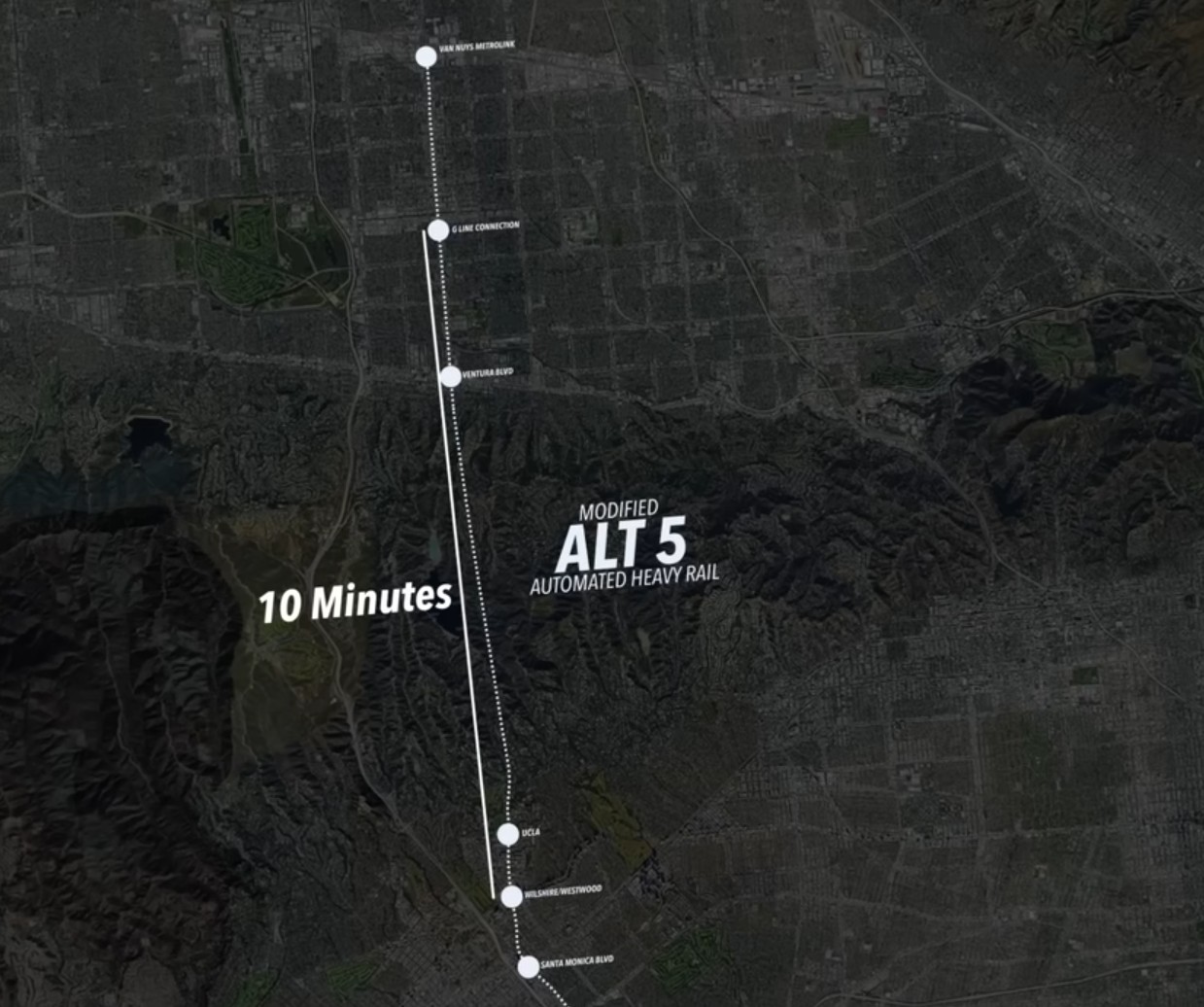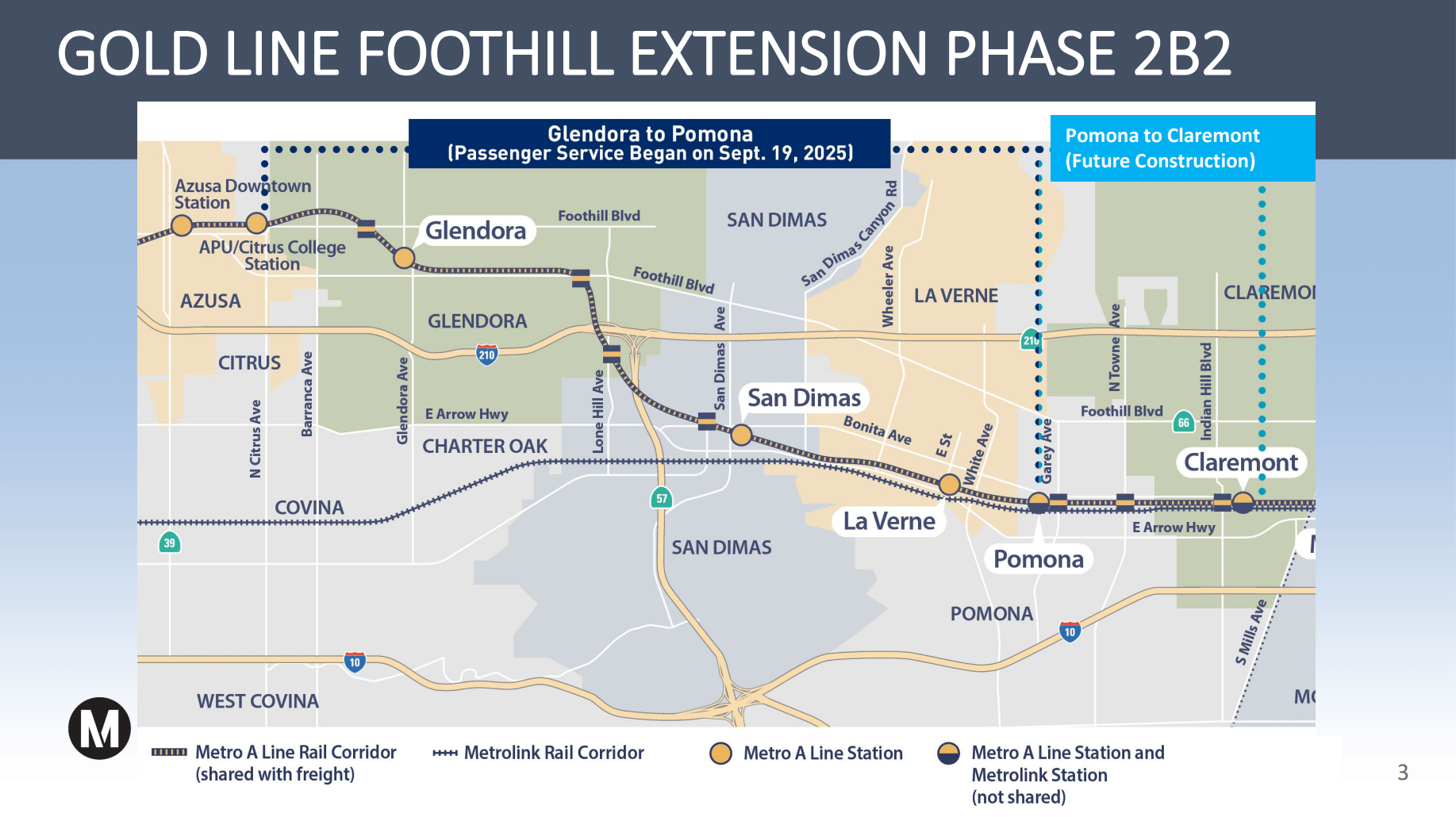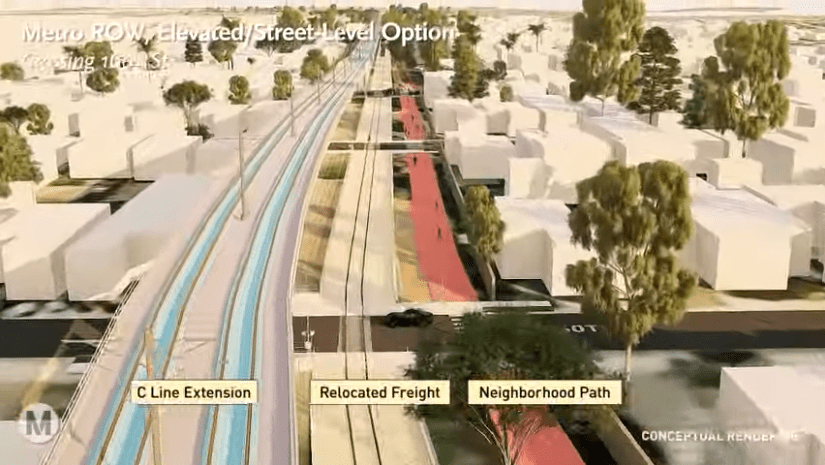
On Saturday, Metro held a public hearing on proposed changes to its fare policy. Metro is proposing to raise its $1.50 base transit fare to $1.75 starting September 2014. From there, it would be raised again to $2.00 in 2017, and to $2.25 in 2020. This would include a 90-minute free transfer, but only when the fare is paid using a TAP card.
Metro's passes would go up similarly. Day passes, currently $5, would cost $7/$8/$9. , Weekly passes, currently $20, would cost $25/$30/$32. Monthly passes, currently $75, would cost $100, then, combined with EZ pass, $120/$135. The Metro proposal includes two options: a straight-up increase, or an increase that splits the increase into two categories: a more expensive peak-commuter-hour fare and a cheaper off-peak fare. More fare increase proposal details at the Metro website.
As one might expect, the hearing was a heated one.
Security was higher than usual. In addition to uniformed armed officers and police dogs, attendees had to pass through a metal detector and allow officers to search bags. The board room was full by the time the 9:30 a.m. meeting started, with late arrivals shunted to the Metro cafeteria to watch proceedings on screens.
For the most part, public commenters, from youth to seniors, urged Metro not to raise fares, primarily for personal economic reasons. One student's summed it up the feelings of many commenters: "I count on the buses, please don't gouge us."
Many groups expressed opposition, but the most prominent among them was the Bus Riders Union. BRU head Eric Mann called on Metro directors to reject the proposed increase, and to enact an immediate 10 percent reduction in fares. Mann also called for an independent audit of Metro finances to determine where past bond measure funding may have been inappropriately redirected to rail construction.
A few individuals and organizations, primarily those interested in seeing expanding Metro rail service, testified in favor of reasonable fare increases, but requested some modifications to the staff's proposal. These modifications included increasing the transfer window to two hours, making TAP cards more useful, and increasing other Metro revenue from advertising, parking, etc to offset the fare increase.
Throughout the proceedings, Metro Board Chair Diane DuBois was very curt, admonishing the crowd not to applaud, frequently cutting off speakers in mid-sentence and speaking over them until they relented.
As the meeting wore on, a handful of speakers rebuffed the chair and finished their statements. When one speaker ignored the chair and spoke at length, DuBois threatened to have him removed for disruptive behavior. As multiple uniformed guards approached the speaker, he retreated to a seat. Other attendees surrounded the speaker to block approaching guards. The ensuing confrontation resulted in the speaker and another individual being removed from the meeting. See video of the incident here. The L.A. Times reported that the two were arrested "on suspicion of disturbing the peace."
After public comment ended, a number of Metro board members questioned Metro staff. Supervisor Gloria Molina questioned some of the staff report statistics, and asked whether the fare increase proposal might be "discriminatory." She concluded requesting further analysis.
Los Angeles city councilmembers Mike Bonin and Paul Krekorian, both appointed to the Board by Mayor Eric Garcetti, expressed the need for Metro to more fully explore other measures to cut costs and raise revenues. Two other Metro Board Members, County Supervisors Don Knabe and Mike Antonovich were not present at the hearing.
The fare increase proposal is expected to be voted on at the May 22, 2014, Metro board meeting. If approved, new fares would go into effect September 1st, 2014.






